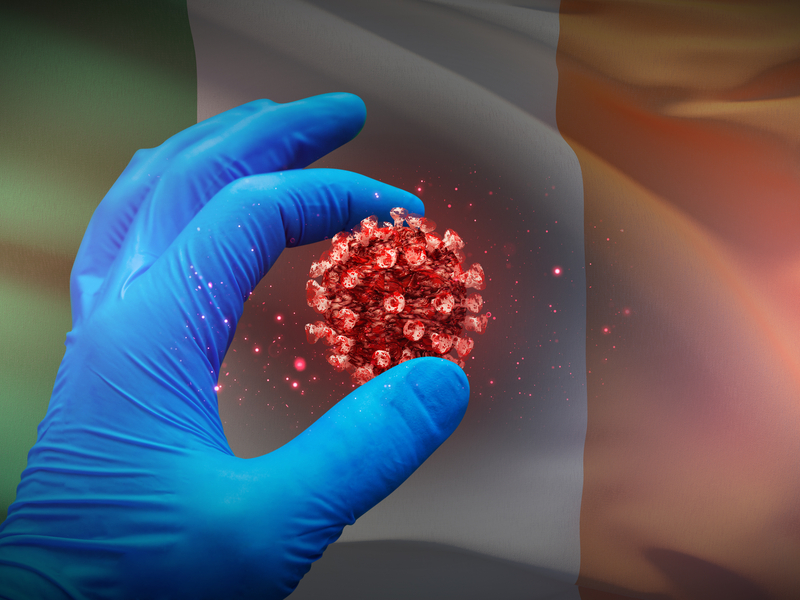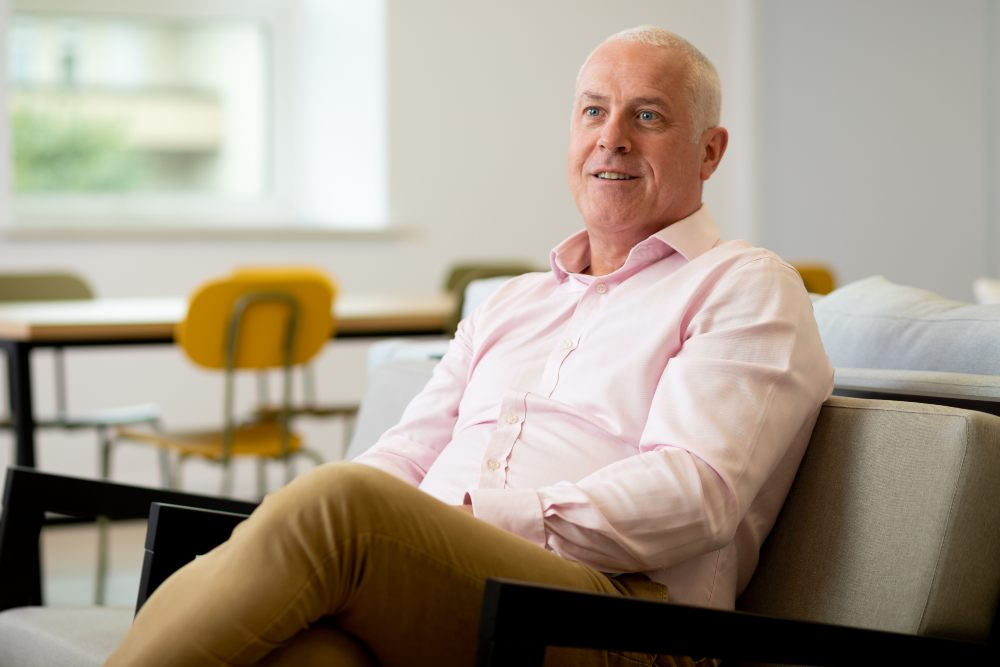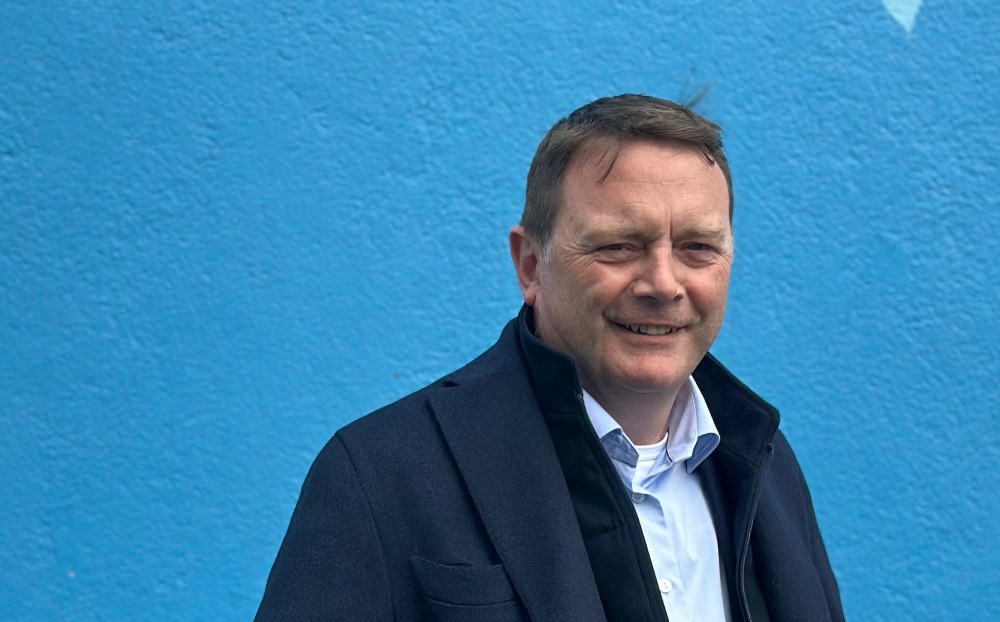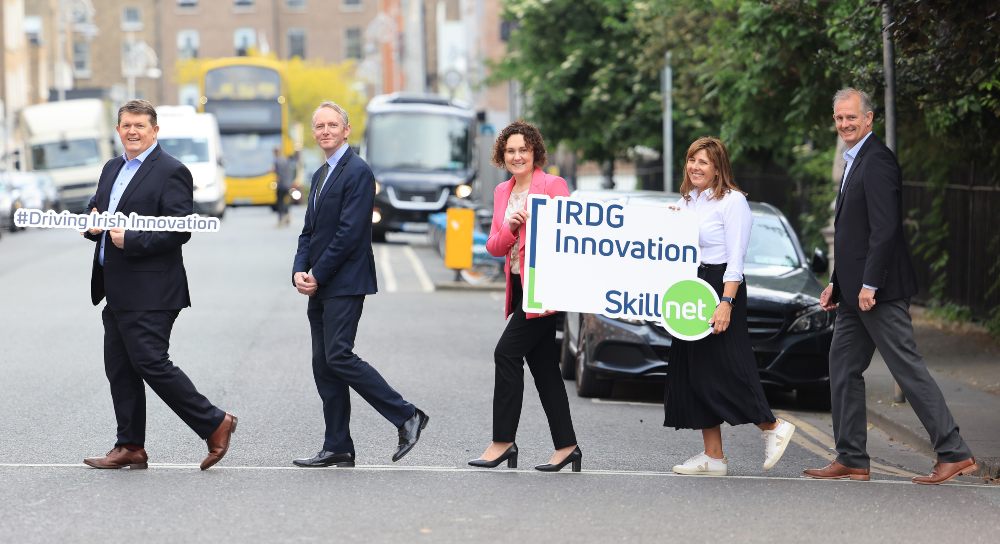Podcast Ep 174: Ireland’s SME businesses are underspending on innovation, warns IRDG CEO Dermot Casey.
Ireland will need to significantly increase its investment in innovation to meet the challenges and opportunities of sustainability and digitalisation. That’s the view of IRDG CEO Dermot Casey who says it is vital we support innovative SMEs to create the next generation of businesses like Kingspan and Fexco.
A recent study by KPMG and IRDG (Industry Research and Development Group) noted that as 80% of businesses in Ireland plan to increase R&D funding over the next three years, there remains a €2bn-plus gap in R&D funding generally across the economy.
“The best way for companies to predict the future is to invent, to create those new products and services for their customers and bring their customers to that path”
The report found that R&D is a significant contributor to Ireland’s economy, with over half (52 %) saying R&D funding has supported more employment, while almost two-thirds (64 %) say it has allowed them to conduct more R&D activity.
More than three-quarters (78 %) of RD&I professionals believe an enhanced 50% R&D tax credit will incentivise green or sustainable technology development, as global pressure on business to decarbonise increases.
Innovation needs a voice
Casey is an individual who has deftly spread his career between academic and entrepreneurial pursuits. Having taught strategy and innovation on various MBA programmes at the Smurfit Graduate School at UCD, he also cut his teeth as a builder of businesses and technologies and played an instrumental role in Storyful’s ascent leading to its acquisition by Rupert Murdoch’s News International, growing the company’s workforce and raising millions in funding.
Prior to heading IRDG he was venture lead at NDRC for five years and more recently formed Resolve Partners which created Accelerate Green, Ireland’s first climate tech scaling accelerator as well as SportX for sports tech start-ups.
The IRDG came into being in the early 1990s to create a coherent business voice for firms keen to engage in R&D in order to scale their businesses and innovate through new products and services.
More recently it forged a partnership with Skillnet Ireland to equip businesses to compete in an eara where innovation makes a tangible difference. The partnership will see IRDG work with companies who take part in the IRDG Innovation Skillnet and enable them to learn tools, frameworks and best practices to respond effectively to their business skills needs.
I begin our conversation by asking Casey how innovative Irish SMEs are in the European scheme of things. He said there are many businesses engaged in serious levels of R&D that few people would be aware of.
“We have Irish indigenous industry that is as effective as anybody else in the world and doing world class product development, world class services and manufacturing. And most of these companies will probably be companies that people would never have even heard of. So, you know, people will have heard of Kingspan as a global company, and with the drives of sustainability these days, the focus would be not to think of them as an insulating company, think of them as an energy management company, and how they manage the energy around buildings. And that’s how I think how they how they’ve seen themselves. You got companies like Tricel down in Killarney who are doing waste and water management and who have acquired five companies across Europe over the last year. Another business TireCheck has grown as an indigenous company organically to to 140 people and their major clients would be in in Germany – they’re not even focused on the domestic market. So there’s a huge amount of innovation in Irish business; a lot of it is not obvious or visible, but people are using their products every day. You go to you go to you go into a canteen anywhere and you’re quite likely you’ll see a Marco Beverages water dispenser for your for your tea or your coffee. But most people probably wouldn’t have thought about Marco as an Irish company. So you know [Irish] innovation, products and services are everywhere.”
Casey said that IRDG has been evolving its courses to better equip SME businesses as well as multinationals to ingrain innovation and design thinking in their operations.
“The reality is that even product-based businesses are building in service components. ThemoKing employs 750 people in Galway, 70 of them in R&D. They are now putting telematics into the refrigeration units to increase efficiency. The new units are 30% more fuel and energy efficient than previous generation. In effect they are reducing carbon footprint but also the costs for these companies. But how do you design those services, how do you build them.
“The courses we run are designed to lift that management side of innovation and upskill people.”
The aim, he explained, is to unlock innovative and design thinking that already exists in businesses. “It’s about people looking at the more creative side of what they do in terms of what’s the next generation of products or services. What does true disruptive innovation actually look like? So there’s a huge variety of courses and programmes that we’ll be able to offer. There’s a lot going on across 2023 and we have a lot of exciting plans for 2024 as well.”
Do not stand still
IRDG recently asserted that companies that invest in innovation demonstrate three-times the turnover and almost six-times the export sales figures as ones that don’t.
What Casey means by this is commercial reality in our time. You have to build products people will pay for. Otherwise your business will fail.
“If you if you look at companies that are investing in innovation and R&D, it’s absolutely critical to their future. Businesses move at the speed of change of the environment around them. I worked for GE a number of years ago and Jack Welch had a had a famous saying that companies that don’t change at least as fast, if not faster, than the environment around them are dead, because everything will move on and move away from them. That continued pressure is coming on companies. The best way for companies to predict the future is to invent, to create those new products and services for their customers and bring their customers to that path.
“The companies that do spend their money on R&D, and do commercially focused research and innovation win because what you’re looking at are things that create value for customers. As a nerd, you can get very excited about various technologies over time. But the technology is only valuable if it brings value to your customer, ultimately, and they’re the people who decide if that’s brilliant or it’s not for them.”
It is arguable that more than 20 years ago Ireland barely had an R&D policy before Science Foundation Ireland went about building the research infrastructure and attracting the PhD researchers who would put Ireland on the research map. Many of those research bodies have spawned spin-outs that could become the big employers of the future in Ireland.
But among businesses who are trying to keep the lights on, terms like innovation and R&D can often be a little, well, academic. The creation of tax credits for businesses goes some of the way but Casey believes the process for reducing the cost of research needs to be simplifies.
“There are businesses who are investing in R&D, who are not claiming the R&D tax credits, because of the overhead costs and the concerns around it. So in our in our survey, 46% of companies cited that as a challenge, particularly SMEs.
“The Department of Finance and Revenue have made some moves over the last while to simplify that. We think that there’s some more significant things that they could do to make the process simpler. We’re seeing particularly in the UK the process is considerably simpler from an SME perspective, and some companies are citing France as well as, as another EU country that has done an awful lot to simplify its process.
“Even within State aid guidelines, there’s an awful lot we can do to make life better, and particularly to encourage SMEs to invest more in R&D. And look, as you mentioned, you know, energy overheads are a huge issue. I’ve spoken to companies whose energy bill has gone from quarter of a million to a million euros. A large chunk of that money is money that they can’t put into research and development, can’t put into innovation because they literally have to pay the energy bills.”
Fundamental change
Reducing the bureaucracy associated with R&D tax credits would helps significantly as well as adjusting the timeline for realising tax credits.
“Three years is an awfully long time. And for a start-up – I’ve been there myself – it’s an impossibly long time. So, the Department of Finance made a change last year that 50% can be cash up front in year one, that’s really to be welcomed.
“I’d like to see those thresholds increased. There are opportunities to do things there that have fundamental impacts.
“Small amounts of money can make huge differences to smaller companies. And I think it’s critical that we make the processes as painless as possible to encourage and to help companies invest more in innovation.”
Having cut his teeth in start-up life and entrepreneurship with Storyful, Casey believes Ireland is much more entrepreneurial than it had been a decade or two back.
“You regret the things you don’t do in life more frequently than the things you do. There are people I know who have started companies that didn’t work out and they say they’re glad to have tried.
“Entrepreneurship is not an easy game. There has been a flourishing of companies across a broad number of sectors. The variety of companies and the variety of things that are happening is phenomenal across the economy.
“I think entrepreneurship is something everybody should try. It’s not for everybody, but people should get an experience of it.”
Casey notes that Ireland doesn’t have the legacy of long-standing engineering businesses that are the hallmark of economies like Germany or Sweden, but believes there is a chance to create a similar legacy through todays digital businesses.
“The challenge for companies here is selling out. We grow companies to a certain size and then suddenly they are sold to somebody else. You will always have that and it’s a healthy part of the ecosystem, but if it’s the only way for companies to go then it’s not healthy either.”
Crucially, Casey believes we need more diversity in our indigenous businesses, from small start-ups to big global firms like Kingspan and everything in between.
“What is fabulous to see at the moment is you see people coming out of existing companies, they’re coming out of start-ups and they are starting their own companies or they’re coming out of a multinational and starting their own business. I think one of the phenomenal things I’ve noticed over the last couple of years is we see people who have emigrated to Ireland who have come here, and are now starting their own companies. You see that more and more frequently. I think that’s phenomenally important.
“If you think about the diversity of the country compared to 20 years ago, it’s radically changed. And I think that’s going to create a richer society as a whole.”
-
Bank of Ireland is welcoming new customers every day – funding investments, working capital and expansions across multiple sectors. To learn more, click here
-
Listen to the ThinkBusiness Podcast for business insights and inspiration. All episodes are here. You can also listen to the Podcast on:
-
Apple
-
Spotify
-
SoundCloud






